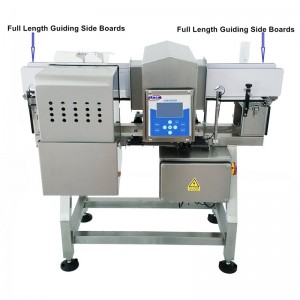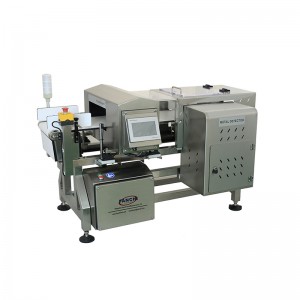Metal detectors are widely used in various industries, including the food industry. In particular, metal detectors for food, also known as inline metal detectors, play a crucial role in ensuring the safety and quality of food products. But have you ever wondered how a metal detector actually works?
At its core, a metal detector for food operates based on the principles of electromagnetic induction. In simple terms, when a metal object passes through the electromagnetic field of the metal detector, it disrupts the field, triggering an alarm to alert the operator of the presence of metal in the food product.
The process begins with the transmitter coil of the metal detector generating a magnetic field. When a food product passes through this field, any metal present in the product causes a disturbance in the magnetic field. This disturbance is detected by the receiver coil of the metal detector, which then triggers the alarm system to alert the operator of the metal contamination.


It's important to note that modern metal detectors for food are equipped with advanced technology to differentiate between different types of metals and to minimize false alarms. This is achieved through sophisticated signal processing algorithms that analyze the characteristics of the disruption in the magnetic field to determine the presence of metal and its type.
In addition to electromagnetic induction, metal detectors for food also utilize other techniques such as balanced coil technology and phase sensitive detection. These techniques further enhance the sensitivity and accuracy of metal detection in food products.
In the food industry, metal detectors are essential for preventing contamination of products with metal fragments, which can pose serious health risks to consumers. This is especially critical in food processing facilities where metal fragments from machinery or other sources can inadvertently end up in the final product.
Furthermore, metal detectors for food also play a key role in ensuring compliance with food safety regulations and standards. By regularly inspecting food products for metal contaminants, food manufacturers can demonstrate their commitment to producing safe and high-quality products.
In conclusion, metal detectors for food, including inline metal detectors, are vital tools for maintaining the safety and integrity of food products. Using the principles of electromagnetic induction and advanced signal processing technology, these devices effectively detect and alert operators to the presence of metal contaminants in food products.
Post time: Feb-20-2024





